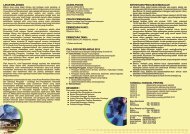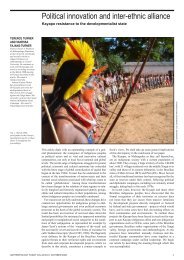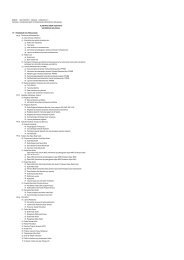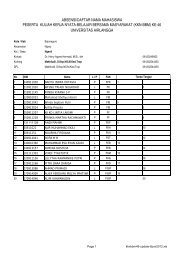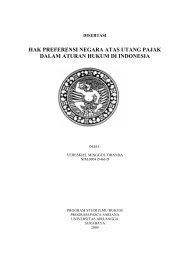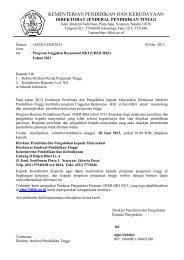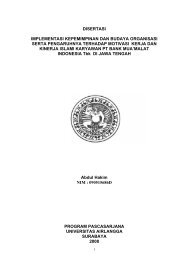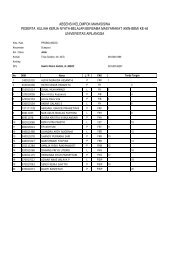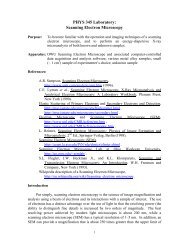Nietzsche's Naturalistic Ethics - UNAIR | E-Book Collection
Nietzsche's Naturalistic Ethics - UNAIR | E-Book Collection
Nietzsche's Naturalistic Ethics - UNAIR | E-Book Collection
Create successful ePaper yourself
Turn your PDF publications into a flip-book with our unique Google optimized e-Paper software.
human beings” (BGE 257) than the person of ressentiment, but in rather different ways. It is thesecond way that Nietzsche is most interested in, and all three of these passages offer examples ofthat kind of person. 152.5 Thus being tied to socialization, ressentiment arises as part of the conditio humana. Ressentimentexists because human beings are what they are, namely, by nature driven by aggressive instincts,which instincts must be oppressed when individuals start living socially. Nietzsche describes therelated developments of the mind and of ressentiment much like the outbreak of a disease, in thesame sense in which Dostoevski’s ‘man from the underground’ (a literary study of a person ofressentiment) states that “not only too much consciousness but even any consciousness at all is adisease” (Dostoevsky (1993), p 7). Or, to use an image that Nietzsche provides when talking aboutguilt, just as the bad conscience is a disease much as pregnancy is a disease (GM II, 19), so15 For an illuminating and related discussion of Wohlgeratenheit, see also fragment15[39], p 432 of the 87/89 volume. It is of particular interest that Nietzsche praises this type ofperson not only for her ability to refrain from blame (she does not believe in guilt), but also fornot acknowledging anything as a misfortune. Wohlgeratenheit also appears in the Antichrist, inparticular in the final section A 62, where it is listed alongside health, beauty, courage, spirit,benevolence of the soul, and life itself as opponents of Christianity (cf. also A 24, A46, A52, andalso TI, Errors, 2 ). For the connection between Wohlgeratenheit and Nietzsche’s Übermensch,see EH, <strong>Book</strong>s, 1, where Nietzsche says that the latter just is a type of highest Wohlgeratenheit.EH, Destininy, 4, puts a particular spin on Nietzsche’s use of that term: there he points out thathe rejects the type of the Wohlwollenden and the Wohltätigen, which are the more traditionalmoral ideals of the benevolent and the beneficent. The one who turned out well, as far asNietzsche is concerned, is supposed to replace those types. Persons of ressentiment and thosewho turned out well do not constitute disjoint groups; rather, those notions denote somewhatabstract types, in the spirit of BGE 260, where Nietzsche claims that slave morality and mastermorality can occur in the same individual. As Nietzsche says, a “distinguishing feature of the‘higher nature,’ the more spiritual nature,” is “to be (...) a battle ground for these opposites”(GM I, 16). In GM I, 10, Nietzsche explicitly acknowledges that ressentiment may appear in thenoble man, but then it “consummates and exhausts itself in an immediate reaction, and thereforedoes not poison.”15




